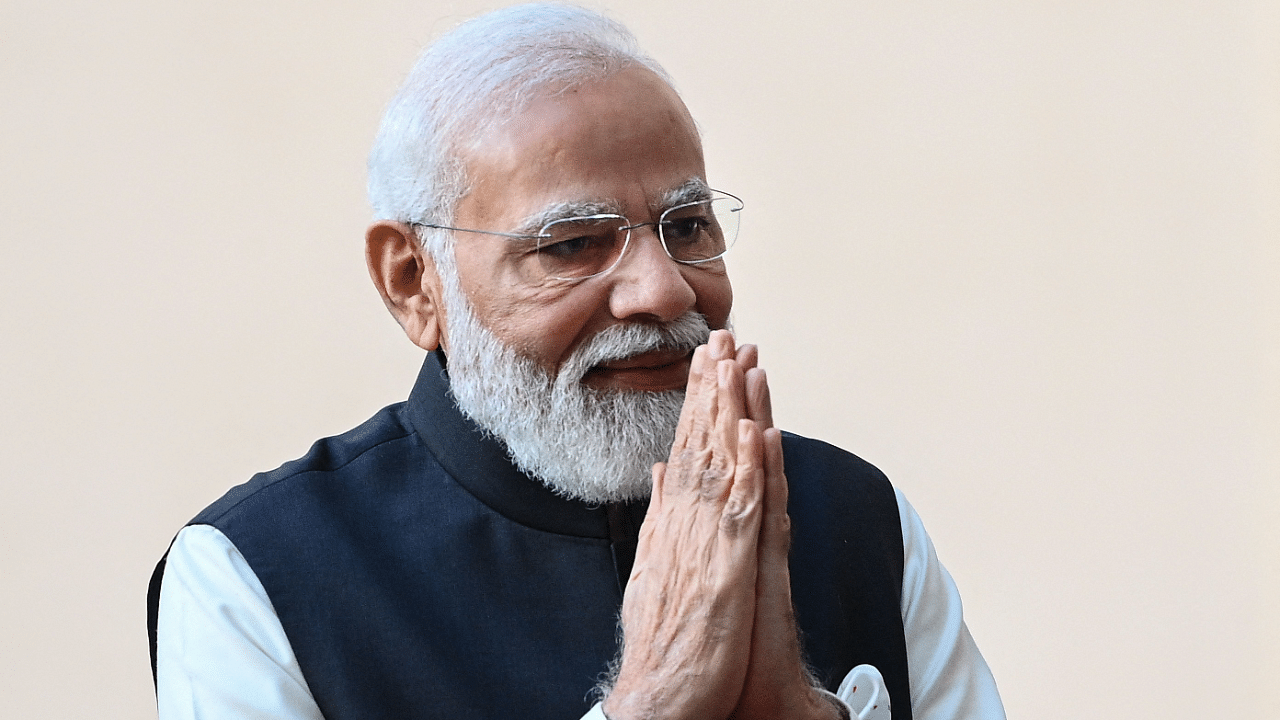
By Mihir Sharma
In the runup to the COP26 climate change summit in Glasgow, everyone and their aide want countries — particularly large developing countries such as India — to commit to achieving net-zero carbon emissions by a specific date. The European Union and the United States have promised carbon neutrality by 2050. China has given itself 10 years longer.
In India, we view such pledges with the skepticism they deserve. Rather than pushing our leaders to issue a similarly bogus promise, rich countries should think harder about how to accelerate the changes we are prepared to make.
It’s important to remember that the targets issued by others aren’t anywhere near as ambitious as they sound. The 2018 report from the Intergovernmental Panel on Climate Change argued that, if warming is to be limited to 1.5 degrees centigrade, the global economy would have to hit net zero by 2050.
In reality, that would mean those places that can afford decarbonisation — China and the West — would have to hit net zero much, much sooner. Expecting both rich and poor countries to zero out their emissions at the same time would be unjust. Moreover, it is not going to happen — and the Western political leaders announcing far-off targets to satisfy activists know it.
Second, those targets are scientifically unbelievable. They rely on the development of some sort of carbon capture technology in the distant future to make up for rich countries polluting today. Carbon capture on a planetary scale is fantastic — i.e., currently fantasy or, more accurately, science fiction. Anyone actually worried about warming would look instead at the total amount of carbon these economies intend to emit — the space under their emissions curves, not the date at which those curves go to zero.
Policymakers know net-zero targets are meaningless. That’s why even many countries that have committed to 2050 or 2060 goals are still quietly commissioning new coal plants or restarting old ones. Germany opened a new coal plant as late as last year and is still clearing populated land to dig new coal mines. Faced with high gas prices and approaching winter, other European countries may also turn back to coal. Even COP26’s British hosts, who have worked harder than most to remove coal from their generation mix, had to fire up old coal plants last month.
China’s target is even more farcical. After President Xi Jinping announced it last year, the first months of 2021 saw a flurry of announcements for new coal-fired power projects. The Centre for Research on Energy and Clean Air estimates that “a total of 18 new blast furnace projects with a total capacity of 35 million tonnes per year and 43 new coal-fired power plant units were announced” in just the first six months of 2021.
Perhaps the real question is: If net-zero targets are in fact meaningless, why aren’t more developing countries signing up? India’s government in particular has had no problem setting various economic targets for the distant future that we don’t ever seem likely to achieve.
One answer is that developing countries have very few cards left to play in climate change negotiations and picking a net-zero target is one of them. The fact is, emerging economies such as India are willing to exit coal but can’t do it alone. Whatever energy mix replaces coal — natural gas, renewables, nuclear power — the transition is going to cost money. We will need cash to retire coal capacity, to invest in renewables-friendly power grids, to compensate electricity distribution companies for the long-term power purchase agreements they have with coal plants, and much more.
Multiple such proposals are on the table. The Asian Development Bank wants to set up a fund to buy coal plants in Southeast Asia. The South Africans are looking for help running down the debt of their coal-addicted, state-owned power company Eskom Holdings SOC Ltd. so they can begin to invest in greener energy. Similar plans have worked in parts of the developed world. (Michael Bloomberg, the founder and majority owner of Bloomberg LP, the parent company of Bloomberg News, has committed $500 million to launch Beyond Carbon, a campaign aimed at closing the remaining coal-powered plants in the US by 2030.)
We’re accustomed to thinking of summits as successes if — as in Paris in 2015 — world leaders stand on a stage together and announce an “accord,” even if the agreement has no real significance. But a COP26 full of new pledges about the distant future would be a failure, not a success. I’d much rather the conference end with no big headline but a few new mechanisms to funnel cash towards decarbonizing electricity and steel in the emerging world.
If you want countries such as India to sign up even to empty targets, you have to offer something in return. Saying no to farcical net-zero targets is a sign of our commitment, not our indifference.
Watch the latest DH Videos here: